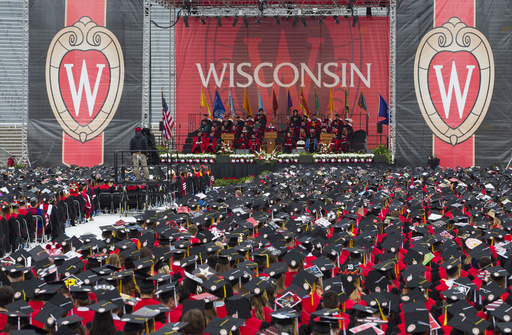Universities in Wisconsin are seeking approval from their regents for an $855 million increase in state funding. This funding is intended to prevent further tuition hikes, provide salary raises, support tuition subsidies, and maintain the operation of two-year branch campuses in some capacity.
President Jay Rothman announced during a Zoom press conference that the administration will present this funding request to regents for approval on Thursday as part of the 2025-27 state budget process. The current annual tuition and fees at the University of Wisconsin-Madison for in-state undergraduates amount to $11,606, with the total cost of attendance per year reaching approximately $30,000, including accommodations and other expenses.
If regents endorse Rothman’s proposal, it will proceed to Governor Tony Evers for possible inclusion in the executive budget plan submitted to lawmakers for budget deliberations. Evers has expressed intentions to suggest over $800 million in new funding for UW in the upcoming two-year spending plan.
The UW system has faced financial challenges due to decreasing enrollment and stagnant state aid, leading to a heavier reliance on tuition revenue. Six of the system’s 13 four-year campuses are projected to have a deficit this academic year, and closures of six two-year branch campuses have been announced since last year.
A substantial portion of the system’s revenue is derived from tuition, with only 17% originating from state funding according to the Legislative Fiscal Bureau. Rothman aims to allocate the additional funding towards an 8% salary increase for faculty and staff over the biennium.
Furthermore, the proposed funding increase would support the Wisconsin Tuition Promise program, which covers tuition and fees for lower-income students starting in 2026. Eligibility for the program is set for students from families earning $71,000 or less.
An injection of state funds not only has the potential to expand tuition subsidies and finance salary raises but it could also aid in the preservation of two-year branch campuses, Rothman noted. Despite potential financial support, Rothman suggested that the missions of these campuses may evolve towards graduate programs or adult education due to declining enrollment trends.




